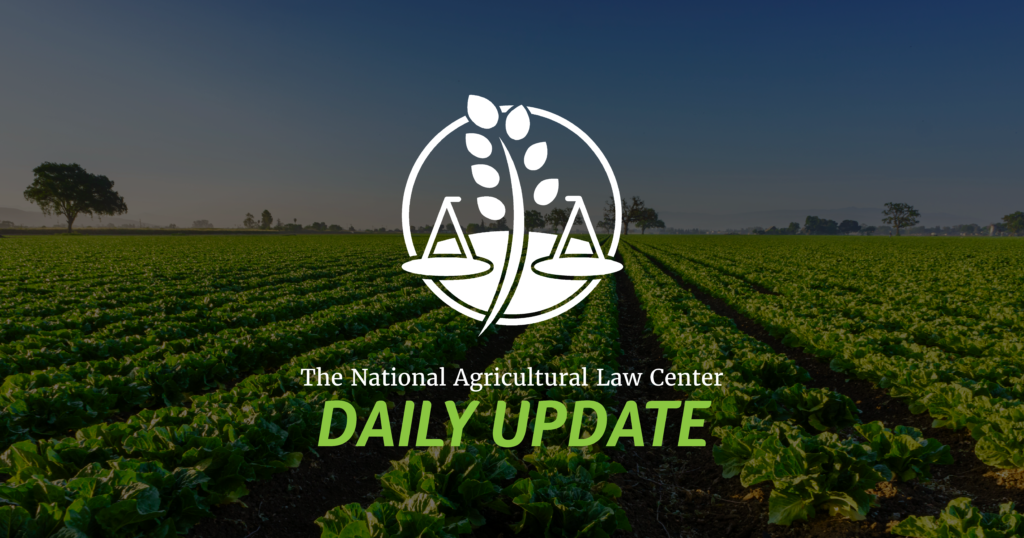A comprehensive summary of today’s judicial, legislative, and regulatory developments in agriculture and food. Email important additions HERE.
Judicial: Removal, Takings, Agency Decisions
In Buljic v. Tyson Foods, Inc., No. 21-1010, 2021 WL 6143549 (8th Cir. Dec. 30, 2021), Plaintiffs-Appellees are relatives of individuals who worked at the Tyson Foods pork processing facility in Waterloo, Iowa, contracted COVID-19, and later died. Defendants-Appellants are Tyson Foods, executives of Tyson Foods, and supervisors at Tyson’s Waterloo facility. Plaintiffs asserted claims for fraudulent misrepresentation and gross negligence, arguing that Tyson’s actions in March and April of 2020 caused their relatives’ deaths. Tyson removed both cases to federal court and now appeals the district court’s orders remanding them to state court. The court consolidated the two cases and affirmed the district court’s orders. The state court found that jurisdiction in the state court was appropriate because Tyson was not acting under a federal officer at the time that Plaintiffs’ relatives contracted COVID-19 and was therefore not eligible for removal under the federal officer removal statute.
In Campo v. United States, No. 20-44, 2021 WL 6102151 (Fed. Cl. Dec. 23, 2021), the court considered whether the plaintiffs had a compensable property right in oysters. When the Bonnet Carré Spillway was opened in 2019, plaintiffs and the putative Class members claimed to have been deprived of the use, occupancy and enjoyment of their personal (oyster stock) and real (oyster beds and reefs) property, resulting in a permanent taking of their property for a public use, without payment of just compensation. The government argued that the plaintiffs had no compensable property rights in oysters and moved for dismissal.
The court found that plaintiffs had all three essential features of the “bundle of rights” commonly characterized as “property” under Louisiana law. Thus, a traditional property rights analysis confirmed that plaintiffs had compensable property rights in oysters as against third parties such as the United States under certain circumstances. The court also found that the efforts that oyster farmers exert when mixing the water bottoms, cultch, and seed oysters confirmed that plaintiffs had typical Lockean property rights in the oysters, this mixture is what the Fifth Amendment assumed to be compensable property if taken for public purpose. The court held that under Louisiana precedent, federal common law, and Lockean labor theory, plaintiffs had shown compensable property rights in oysters as against the United States. The governments motion for dismissal was denied.
In ACKERMAN BROTHERS FARMS, LLC v. UNITED STATES DEPARTMENT OF AGRICULTURE, No. 1:17-CV-11779, 2021 WL 6133910 (E.D. Mich. Dec. 29, 2021), the court had to determine the appropriate remedy for the FCIC’s deficient approval of the expansion of the pilot program for revenue protection for dry-bean farmers to Michigan under the Dry Bean Revenue Endorsement. The only issue before the court in this case was the FCIC’s procedural violation regarding the Dry Bean Revenue Endorsement. The court held that the Federal Crop Insurance Corporation’s decision to approve the Michigan expansion of the Dry Bean Revenue Endorsement will be remanded to the FCIC for further review.
